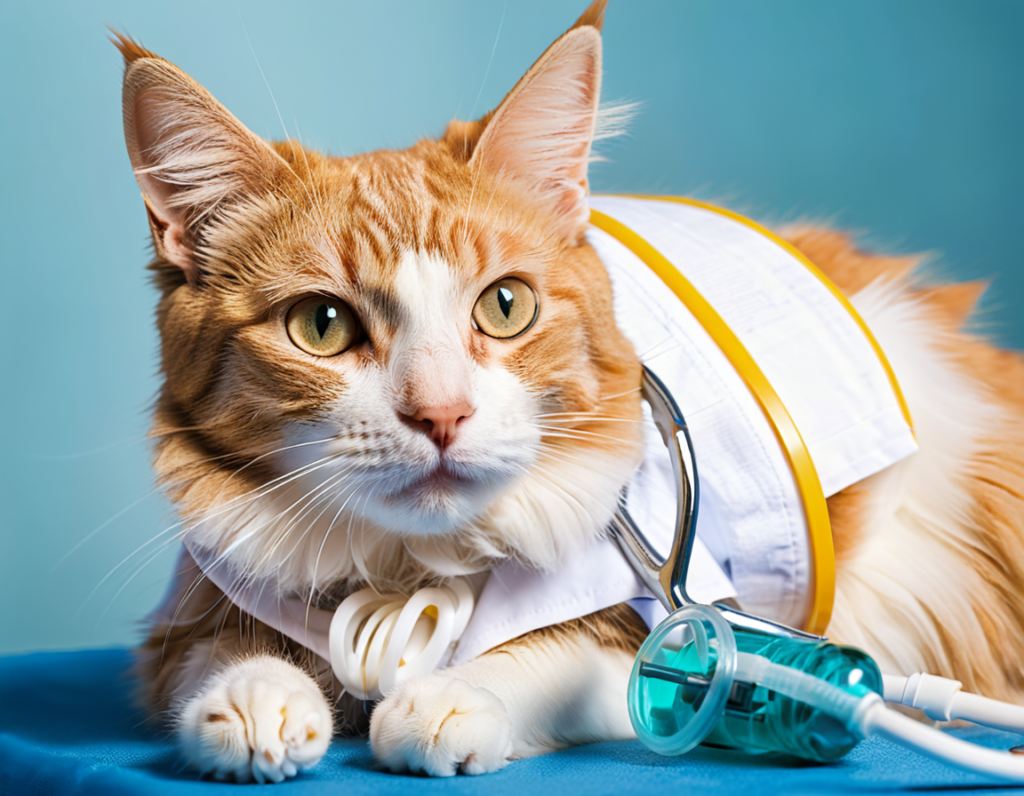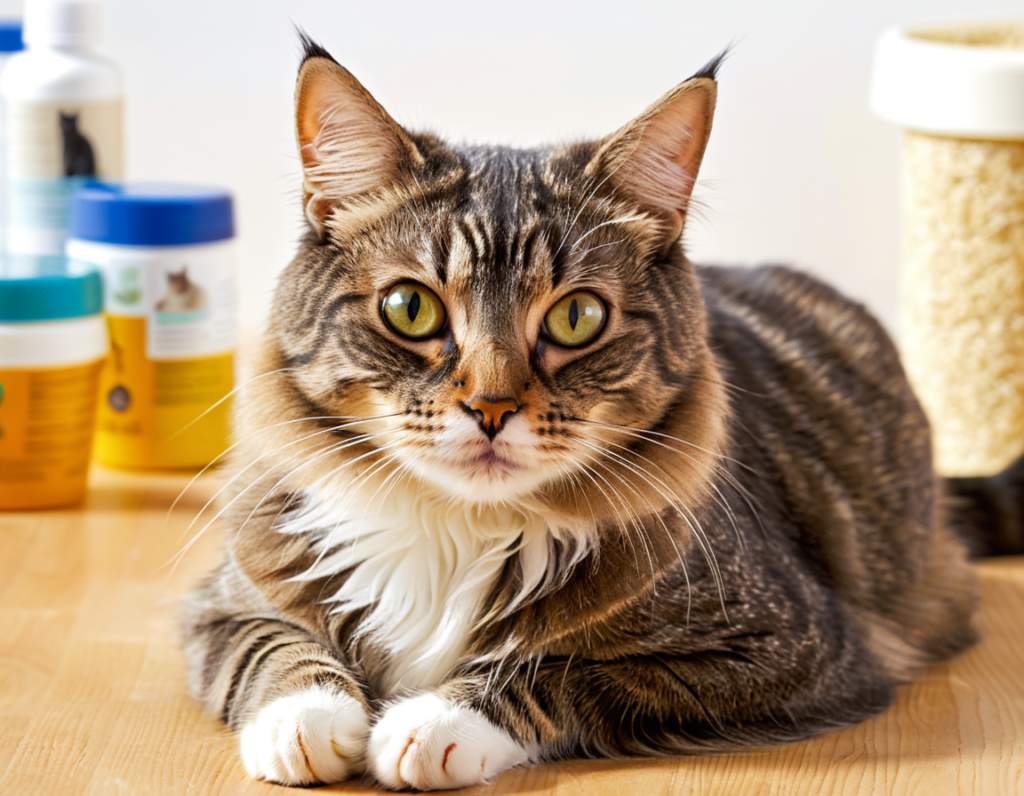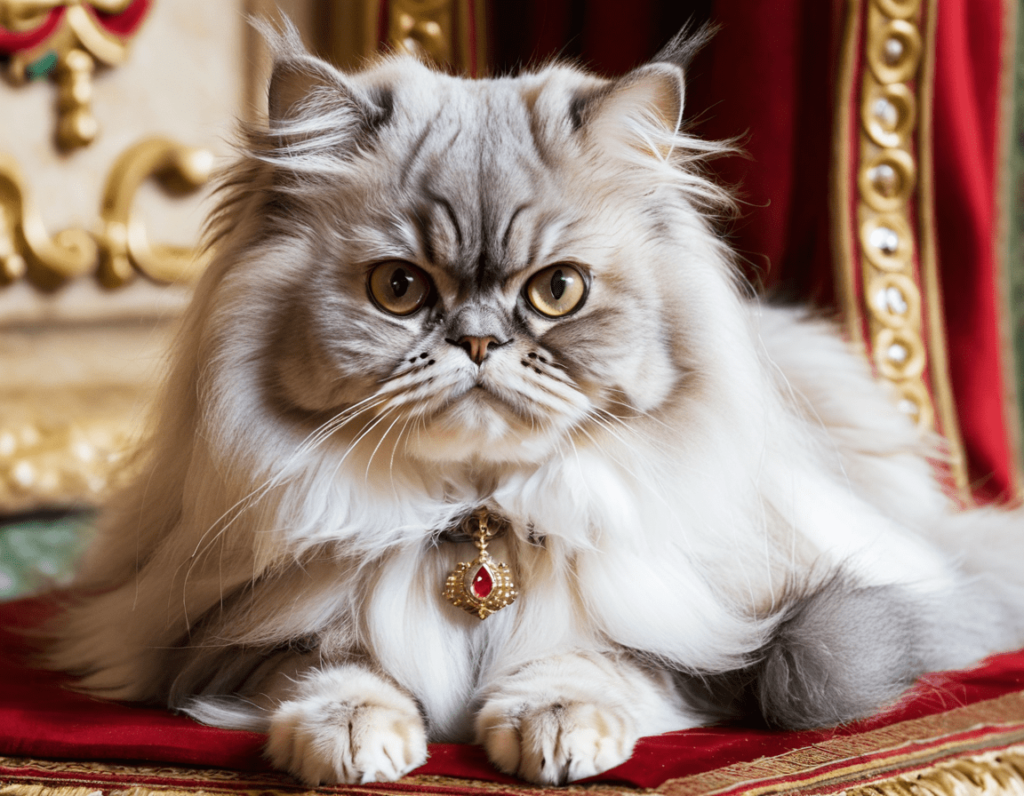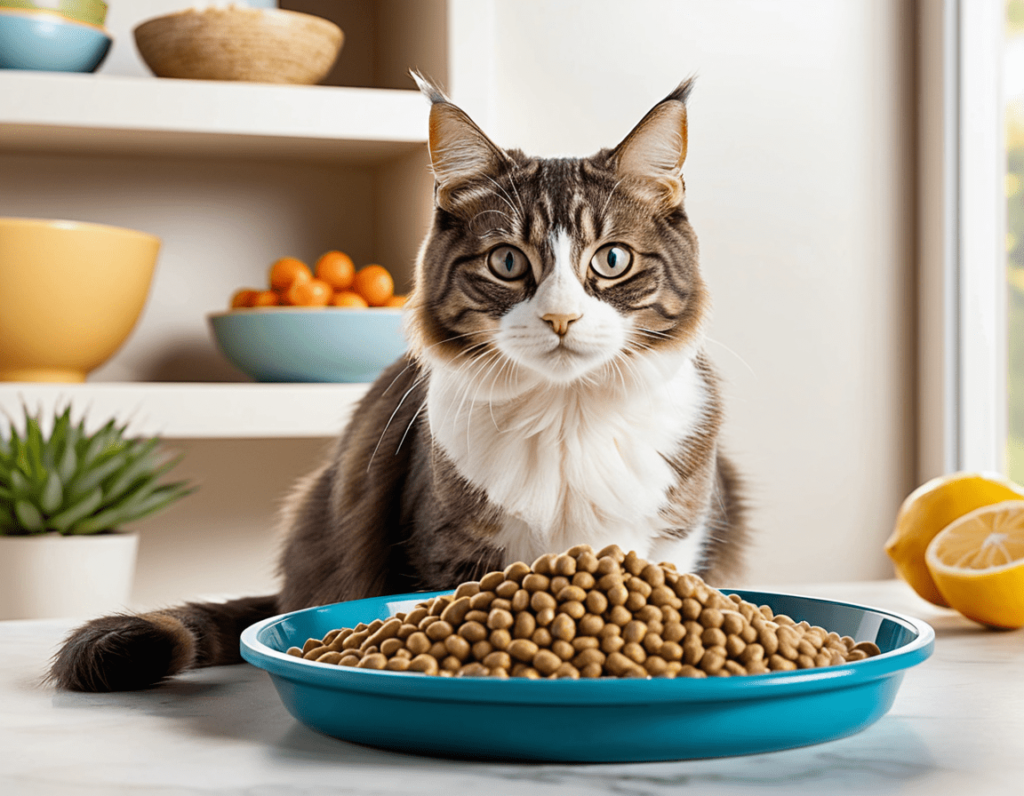
Cats are mysterious creatures, and if you’re a cat owner, you know just how puzzling their behaviour can be. One minute they’re cuddling up in your lap, and the next they’re running around like a tiny tornado. You might find yourself asking, “What did I do to deserve this?” or “Why are they acting like this?” Well, worry no more! In this article, we’ll help you decode your cat’s quirky behavior, so you can be a better, more informed cat parent. Let’s dive into the fascinating world of cat behavior—get ready to laugh and learn!
1. The Mysterious Kneading: "I'm Your Baby!"
If you’ve ever had your cat kneading your lap like it’s their personal dough, you’re not alone. This behaviour, often referred to as “making biscuits,” is a cat’s way of showing affection. Kittens knead their mother’s belly to stimulate milk production, and adult cats keep this habit, often when they’re feeling relaxed or happy.
So, when your cat starts kneading you, they’re essentially telling you, “You’re my human, and I’m comfortable with you.” But let’s face it: after a few minutes, those little claws start to feel like tiny needles. Maybe they’re showing affection and giving you a gentle reminder to trim their claws?
Most searched keywords related to kneading: “Why do cats knead,” “cat kneading behavior,” “cat kneading on owner.”
2. Chasing Their Tail: Is This a Cat Game or a Crisis?
When your cat starts chasing their tail like it’s the most exciting thing in the world, you might wonder if they’ve lost their mind. Don’t worry! Tail chasing is often a playful behavior, especially in kittens. It’s a form of self-entertainment that’s completely normal.
However, if your adult cat is constantly chasing their tail or biting at it obsessively, it could indicate stress or a medical issue. If the behaviour seems unusual or excessive, it’s worth checking in with your vet to rule out anything serious.
Most searched keywords related to tail chasing: “Why does my cat chase its tail?” “cat tail chasing behaviour,” “is tail chasing normal for cats?”
3. The "Zoomies": Feline Speedsters in Action
If you’ve ever seen your cat suddenly take off like a rocket, running around the house at full speed with no apparent reason, you’ve witnessed the infamous “zoomies.” This behaviour usually happens after a nap or after using the litter box (yep, even the littlest things get them excited). Cats, especially young ones, have bursts of energy, and running around is their way of burning it off.
It’s like they’re saying, “I feel so good I could run a marathon!”—and you’re left wondering, “Is this normal?” Totally! Just sit back, grab some popcorn, and enjoy the show. Just make sure they don’t crash into your furniture.
Most searched keywords related to zoomies: “Why do cats get the zoomies,” “cat running in circles,” “cat zoomies explained.”
4. Cat Purring: Not Always a Sign of Happiness
While cats often purr when they’re content, purring isn’t always a sign of happiness. Cats can purr when they’re anxious, scared, or even in pain. So, if your cat is purring but seems off or is hiding more than usual, it’s worth paying attention.
It’s like when a person says, “I’m fine,” but their voice says otherwise. Cats might be purring to comfort themselves, so it’s essential to pay attention to other signs like body language or eating habits.
Most searched keywords related to purring: “Why do cats purr,” “what does cat purring mean,” “cat purring behaviour.”
5. Scratching: A Cat's Way of Saying, “This Is My Space”
We all know the struggle—cats love to scratch. Whether it’s your furniture, the carpet, or even your favorite sweater, they will find something to scratch. Why do they do it? Scratching is a natural behavior that helps cats sharpen their claws, mark their territory, and stretch their muscles.
To prevent your cat from destroying your belongings, try providing them with scratching posts or pads. Bonus points if you find one they actually use (because cats can be picky about where they scratch). And remember, scratching isn’t an act of revenge; it’s just a cat’s way of saying, “This is MY space!”
Most searched keywords related to scratching: “Why do cats scratch furniture,” “how to stop cat scratching,” “best scratching posts for cats.”
6. The Slow Blink: Cat Language 101
You might have heard that when a cat gives you a slow blink, it’s a sign of affection. It’s like a cat’s way of saying, “I trust you.” So, next time your cat gives you the slow blink (and let’s face it, probably looks way cooler than you), return the gesture. Blink slowly back at them, and you’ll likely get a few more slow blinks in return.
This behavior is often called “cat kisses,” and it’s a great sign that your cat feels comfortable with you. If only it were that easy to get a human to show affection like that, right?
Most searched keywords related to slow blinking: “What does slow blinking mean in cats,” “how to tell if a cat loves you,” “cat slow blink affection.”
7. Why Do Cats Knock Things Over?
Ah, the classic “cat knocking things off the counter” move. You set down your glass of water, turn your back for a second, and—bam!—it’s on the floor. While this behavior may seem like your cat is just being a troublemaker, it’s often due to curiosity. Cats explore their environment with their paws, and knocking things over is just part of their investigation process.
Sometimes, cats knock things over to get your attention. If your cat is knocking over a glass while you’re working, they might just want some interaction. Either way, it’s a good idea to secure your valuables (or just accept the chaos as part of life).
Most searched keywords related to knocking things over: “Why do cats knock things off counters,” “cat knocking things over behavior,” “cat curiosity and knocking things over.”
8. Cat Hiding: I Need My Space!
If your cat suddenly starts hiding under the bed or in a closet, don’t panic! Cats are independent creatures, and sometimes they just need a little alone time. Hiding is also common when a cat is feeling unwell or stressed. If your cat is hiding and showing other signs of illness, it might be time for a vet check-up.
But if they’re just taking a catnap in a cozy spot? Let them enjoy their solitude. They’ll come out when they’re ready—like a fluffy ninja.
Most searched keywords related to hiding: “Why is my cat hiding,” “cat hiding behavior,” “why do cats hide when sick.”
9. The Cat's 'Love Bites': What Are They Trying to Say?
Ever been bitten by your cat during petting time? It’s like you’re getting a sweet snuggle, and then—bam—a gentle but sudden nip. While it may seem a little confusing or even frustrating, these “love bites” are actually quite common. Cats may bite during petting as a form of overstimulation or as a way of communicating that they’ve had enough.
Your cat might be sending a message like, “Hey, I like you, but stop petting me in that spot!” It’s kind of like when a person hugs you for too long and you want to break free—only with sharper teeth. It’s best to pay attention to your cat’s body language: if their tail starts flicking, ears go back, or they tense up, that’s your cue to back off a little.
Most searched keywords related to love bites: “Why do cats bite during petting,” “cat love bite meaning,” “cat biting behavior during petting.”
10. The Midnight Zoomies: Why Cats Go Crazy at Night
If your cat becomes a nocturnal speedster at 2 a.m., you’re definitely not alone. Many cats are naturally more active during the night, and those midnight zoomies are their way of burning off excess energy. After all, they’re predators by nature, and being active at night is instinctual.
To avoid being woken up by a furry tornado at odd hours, try to schedule playtime during the day—especially in the evening before bed. This can help tire your cat out so they’re less likely to race around the house when you’re trying to sleep. If nothing else, just remember that your cat’s midnight adventures are probably hilarious to watch… even if it’s from your bed.
Most searched keywords related to midnight zoomies: “Why do cats get the zoomies at night,” “cat night activity,” “cats running around at night behavior.”
11. Cat "Meowing": More Than Just Talking
If your cat meows at you, chances are you’ve wondered what they’re trying to say. Unlike dogs, who bark to communicate, cats tend to meow to communicate with their humans. Whether it’s a soft “hello,” a loud demand for food, or a long, drawn-out meow because they’re bored, meowing is their way of getting your attention.
Some cats may meow more often, while others might be more silent, depending on their personality. But if the meowing becomes excessive or persistent, it could be a sign of boredom, anxiety, or a health issue, so make sure to take note of any changes in behavior.
Most searched keywords related to meowing: “Why does my cat meow so much,” “cat meowing for attention,” “cat meowing behavior.”
12. The Cat’s 'Gift': Why They Bring You Dead Things
Okay, let’s talk about the “gift” your cat might bring you—whether it’s a mouse, bird, or, in some cases, something far more surprising. While this behavior might seem a little gruesome, it’s actually a sign of your cat’s natural hunting instincts.
By bringing you a dead animal, your cat may be trying to teach you how to hunt, showing you what they caught for you, or just sharing their spoils. Think of it as a cat version of a “thank you” gift—just one that’s a bit more… raw. As disturbing as it might seem, it’s a pretty common cat behavior.
Most searched keywords related to cat gifts: “Why do cats bring dead animals,” “cat hunting instincts,” “cat gift behavior.”

Final Thoughts: Embrace the Cat Chaos
As you can see, understanding cat behaviour is a bit like reading a foreign language. The key is to observe and learn their individual quirks. Each cat is unique, and their behaviour is shaped by their personality, environment, and experiences. So, next time your cat is purring loudly, chasing its tail, or giving you a slow blink, just remember: it’s all part of the delightful, sometimes perplexing world of being a cat owner.
Whether it’s for the zoomies, the kneading, or those adorable slow blinks, enjoy the ride—and be prepared for some laughs along the way!
Most searched keywords related to cat behavior: “Understanding cat behavior,” “why do cats act that way,” “how to read your cat’s behavior,” “funny cat behaviors.”
FAQs About Cat Behavior: Your Top Questions Answered
Cats are full of surprises, and as a cat owner, you’ve probably found yourself scratching your head trying to understand their quirky behavior. From sudden zoomies to mysterious purring, cats can leave us wondering what’s going on in their minds. To make things a bit clearer, here are some frequently asked questions about cat behavior.
1. Why does my cat knead me?
Answer: Kneading, or “making biscuits,” is a behavior cats carry over from kittenhood. Kittens knead their mother’s belly to stimulate milk flow, and adult cats often do the same when they’re feeling safe and content. If your cat kneads you, it’s a sign they trust you and are relaxed in your presence. But, watch out for those sharp claws!
2. Why does my cat purr?
Answer: Cats purr for many reasons, not just when they’re happy. While purring often signals contentment, cats may also purr when they’re in pain, anxious, or even when they’re trying to comfort themselves. If your cat is purring and also showing signs of distress (like hiding or not eating), it might be time to check in with the vet.
3. Why do cats rub their faces on everything?
Answer: When your cat rubs their face on furniture, you, or even random objects, it’s a way of marking their territory. Cats have scent glands located around their face, and when they rub against something, they leave behind their scent, signaling to others that “this is mine.” It’s like their way of giving you a little love—and claiming you as theirs!
4. What does it mean when my cat suddenly runs around like crazy?
Answer: Ah, the zoomies! Cats can get a burst of energy out of nowhere and suddenly dash around like little speedsters. This is typically a sign of a playful mood or the need to burn off some pent-up energy. It’s perfectly normal, especially in younger cats, but be prepared for your cat to make a few unexpected pit stops (like knocking over that glass of water).
5. Why do cats scratch everything?
Answer: Scratching is a natural cat behaviour, essential for sharpening their claws, stretching their muscles, and marking their territory. Your cat might scratch your furniture or your carpet because it feels good, and it’s part of their instinct. To prevent destruction, provide plenty of scratching posts and pads to keep their claws busy.
6. Why does my cat bite me?
Answer: If your cat gives you a little bite during play or petting, it could be due to overstimulation. Some cats love being petted but will nip or bite when they’ve had enough. Other times, biting could be a sign of affection or playfulness. However, if the biting becomes aggressive or frequent, it may be a sign of stress or anxiety.
7. Why does my cat stare at me?
Answer: When your cat stares at you, it could mean a few things. If they blink slowly while staring, it’s a sign of affection. But if they’re staring without blinking, it might be a sign they’re trying to communicate something—whether it’s hunger, curiosity, or a desire for attention. Either way, they definitely have something to say!
8. Why do cats hide when they’re not feeling well?
Answer: Cats are known for hiding when they’re feeling unwell or stressed. It’s a natural instinct to seek a quiet, safe space when they’re not at their best. If your cat suddenly starts hiding more than usual, it could be a sign they’re not feeling well. If they’re also showing other signs of illness, such as loss of appetite or vomiting, it’s a good idea to schedule a vet visit.

9. Why do cats knock things off tables?
Answer: Cats love to explore with their paws, and sometimes that means knocking things over. They might be curious, bored, or even just testing gravity. If your cat is knocking over your prized possessions, they might be trying to get your attention or simply having fun. It’s a classic cat move, so be ready to cat-proof your space!
10. Why does my cat lick me?
Answer: Licking is a sign of affection. Cats lick each other to groom and bond, so when your cat licks you, it’s a way of showing love and creating a bond. But, if your cat is licking excessively, it could be a sign of stress or anxiety, so keep an eye out for any other changes in behavior.
11. Why do cats sleep so much?
Answer: Cats are known for their love of sleep, and they can sleep anywhere from 12 to 16 hours a day! As natural hunters, cats conserve their energy by napping during the day. If your cat is sleeping more than usual or seems lethargic, it could be a sign of illness, so make sure to check in with your vet if you’re concerned.
12. Why do cats meow?
Answer: Meowing is how cats communicate with humans, and it can mean different things depending on the situation. A cat might meow to get your attention, tell you they’re hungry, or simply say “hello.” However, if your cat is meowing excessively or in a way that seems unusual, it could be a sign of stress or a medical issue, so it’s always good to listen to their tone and body language.
Final Thoughts on Cat Behavior
Understanding your cat’s behavior can be a fun journey of trial and error, but once you start noticing the little clues, you’ll get better at interpreting what they’re trying to say. Remember, every cat is unique, so while some behaviors are common, others might just be your cat’s special quirk. So keep observing, keep loving, and embrace the joy that comes with living with a curious, funny, and sometimes downright weird cat!


